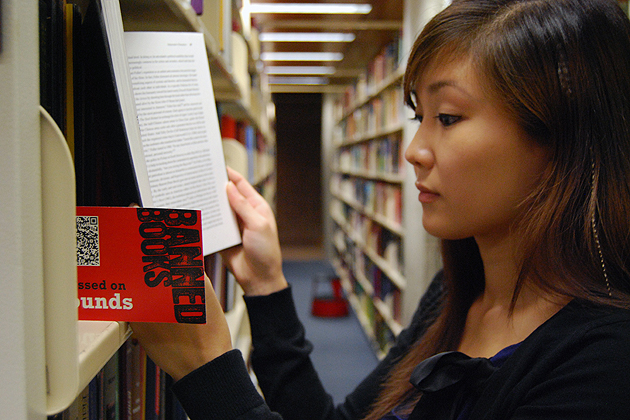
The University Libraries have been celebrating Banned Books Week this week (Sept. 24- 30), with an exhibit on display in the Babbidge Library Plaza, a treasure hunt for banned books, and a website dedicated to the topic. Library users can also listen to an audiobook, Ulysses, by James Joyce, and read about books banned for political, religious, sexual, or social reasons.
Banned Books Week is an annual event celebrating the freedom to read and the importance of the First Amendment.
The Libraries’ website notes that, “Intellectual freedom – the freedom to access information and express ideas, even if the information and ideas might be considered unorthodox or unpopular – provides the foundation for Banned Books Week.”

The site includes a list of 100 classics banned or challenged, compiled by the American Library Association’s Office for Intellectual Freedom; a YouTube video portraying the confusion of a library patron as he discovers that many of the titles he wants to read have been censored; and an interactive survey of whether visitors to the site have read particular titles on a list of challenged or banned books.
An ALA list of the top 10 most frequently challenged books in 2009 includes To Kill a Mockingbird, by Harper Lee; The Catcher in the Rye, by J.D. Salinger; The Color Purple, by Alice Walker; and The Chocolate War, by Robert Cormier.
And a list of “least expected” books that have been questioned includes Anne Frank; The Diary of a Young Girl, challenged for sexually explicit passages; The Lion, the Witch, and the Wardrobe, by C.S. Lewis, challenged for promoting the occult and mysticism; and The Lorax, by Dr. Seuss, challenged in California in 1989 for “criminalizing the foresting industry.”



